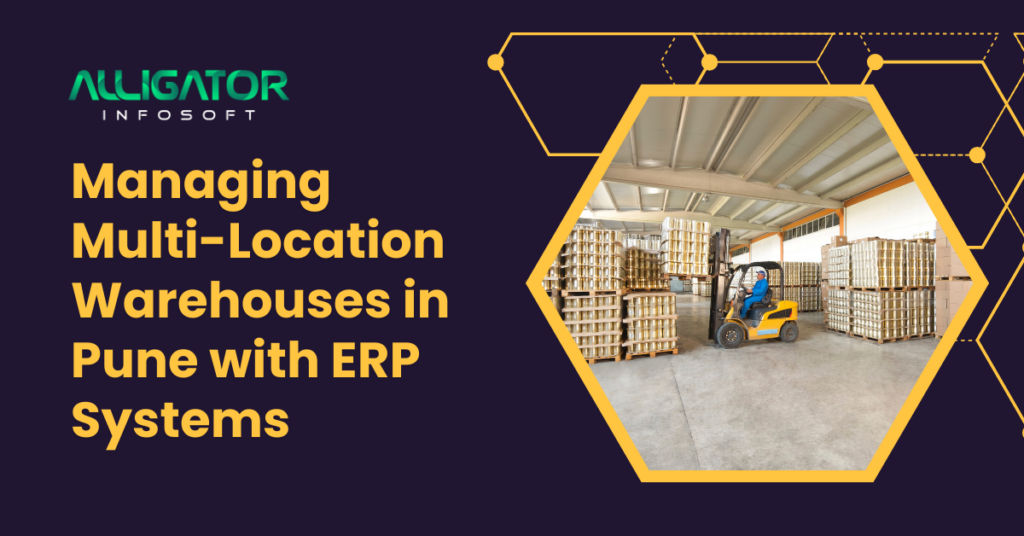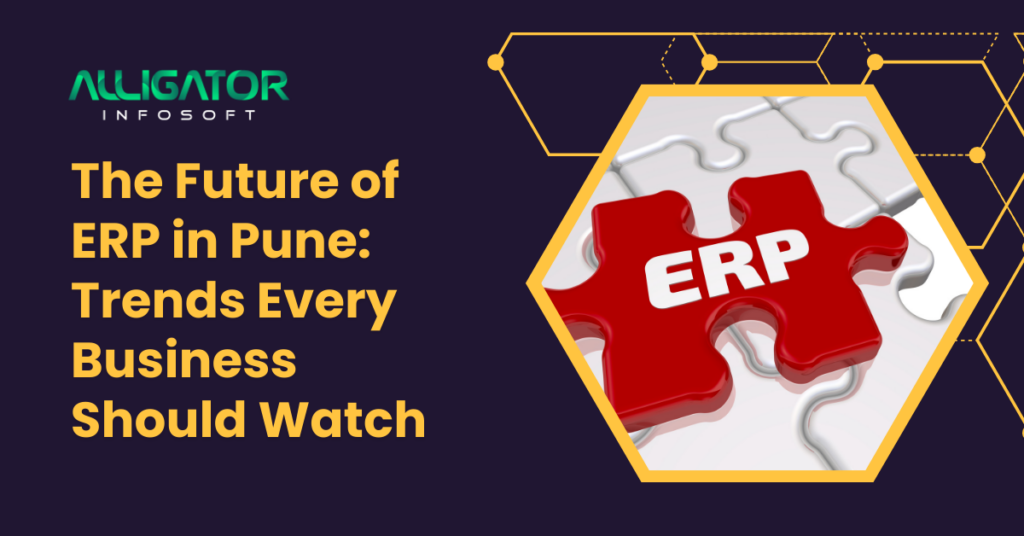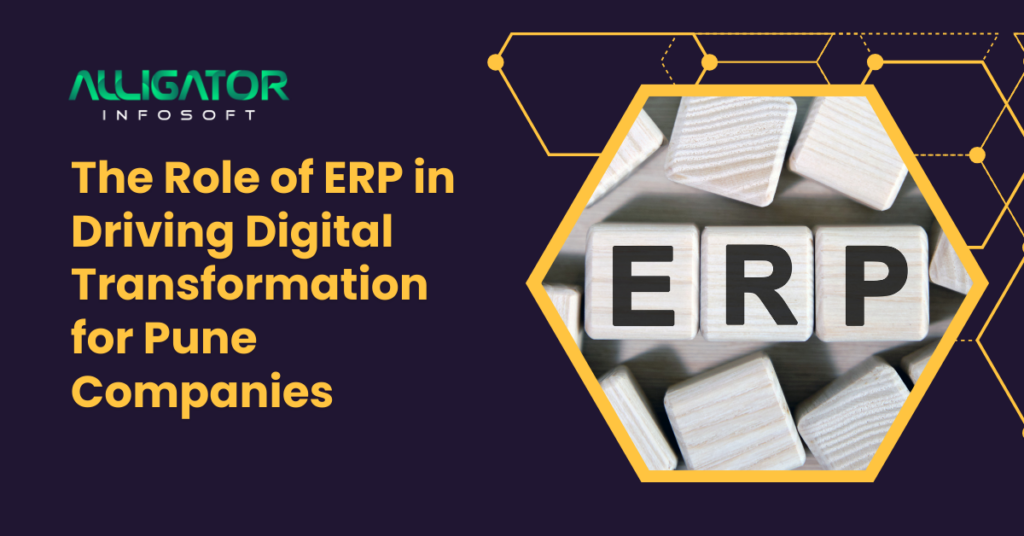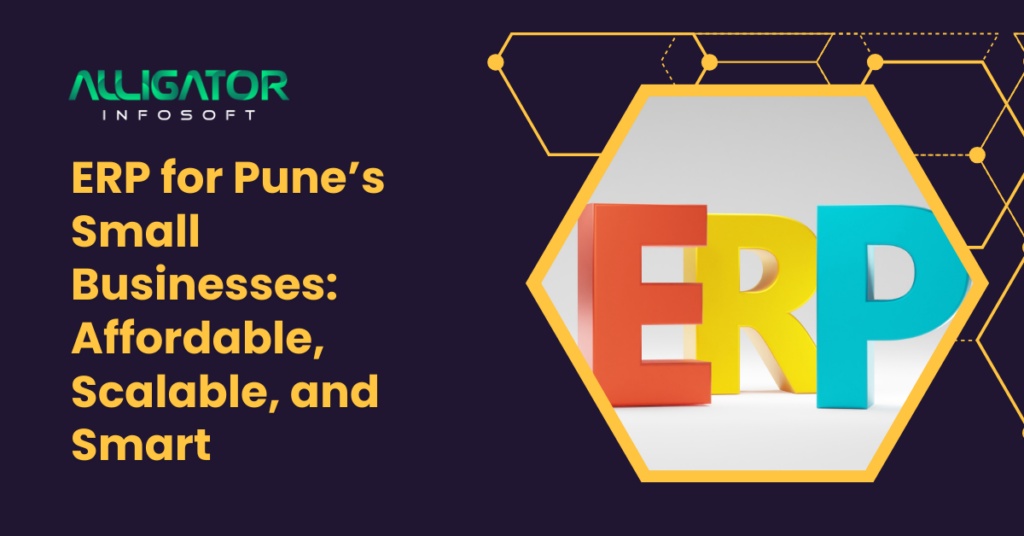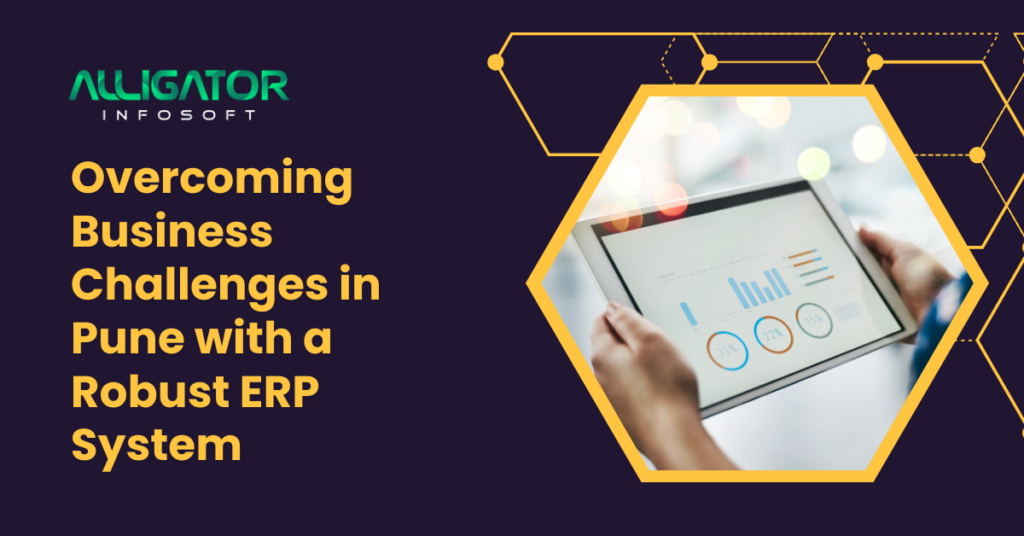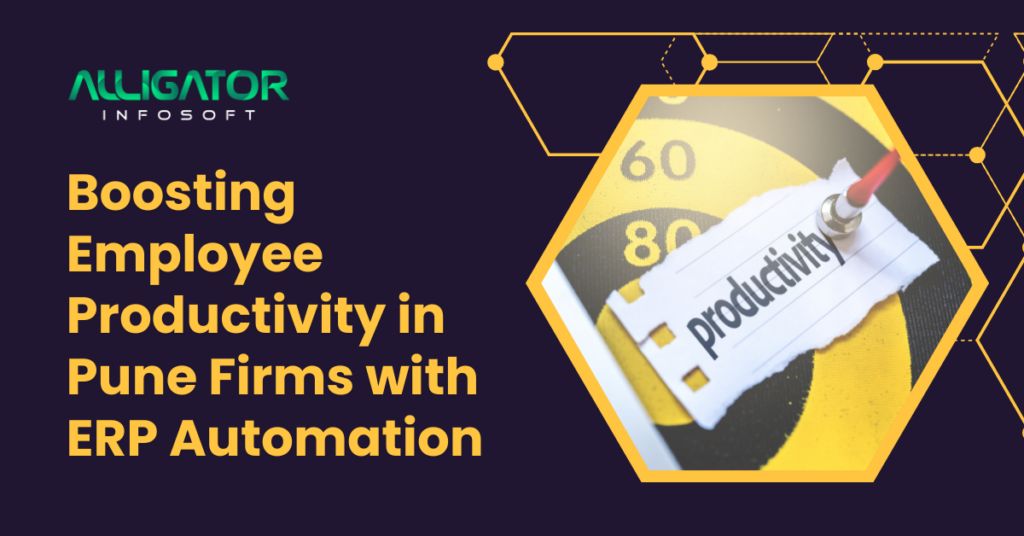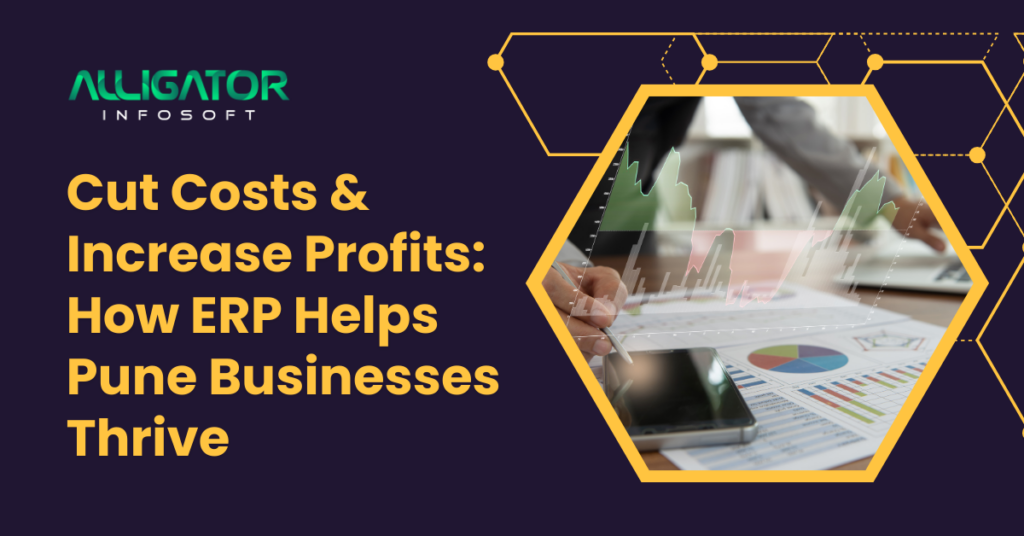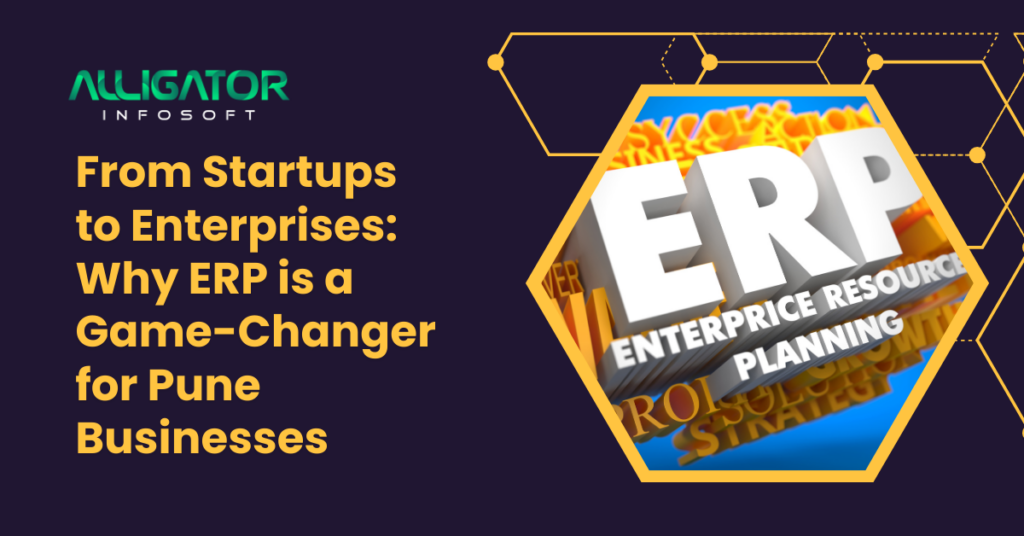Managing Multi-Location Warehouses in Pune with ERP Systems
Pune is quickly becoming one of India’s key industrial centers, with manufacturing, logistics, and distribution networks spreading across Chakan, Talegaon, Ranjangaon, and Hadapsar. For businesses operating across multiple warehouse locations in the region, managing inventory and supply chain workflows can get complicated. Every new warehouse introduces more data, more people, more movement—and often, more confusion. That’s where ERP (Enterprise Resource Planning) systems come in. They allow businesses to manage everything from inventory to order processing, financials, logistics, and compliance—all from a single platform. With the right ERP system, companies can transform fragmented warehouse operations into a streamlined, scalable system. Common Challenges of Managing Multiple Warehouses Disconnected Inventory Systems Businesses that operate multiple warehouses often struggle with disconnected or siloed inventory systems. One warehouse may track inventory through spreadsheets, another might use basic software, and yet another might operate manually. This creates inconsistencies in data and makes it hard to know what’s actually in stock across the entire operation. Such fragmentation increases the risk of errors. Items may be overstocked in one location and unavailable in another. Without real-time visibility, teams often place unnecessary orders, increasing storage costs and locking up capital that could be better used elsewhere. Delayed or Inaccurate Order Fulfillment Without centralized order routing, orders can be processed from the wrong warehouse or delayed due to insufficient stock. This not only affects delivery times but also adds to transportation costs and increases the chances of customer dissatisfaction. When stock visibility is poor, sales teams may commit to delivery timelines that the warehouses can’t meet, leading to canceled or late orders. Order fulfillment errors can damage long-term client relationships. If your customers receive wrong or delayed items more than once, chances are they’ll start looking elsewhere. Manual Workflows and Human Errors Manual data entry across warehouse operations introduces many opportunities for mistakes. Product counts may be entered incorrectly, shipment statuses may be overlooked, or critical updates may not be communicated across locations. Over time, these small issues accumulate, leading to inefficiencies that affect the entire supply chain. Additionally, managing processes like stock transfers between warehouses without a system in place usually means relying on emails, calls, or offline paperwork. These outdated methods can easily be miscommunicated or lost. Limited Data for Strategic Decisions One of the biggest limitations of managing multiple warehouses without an ERP system is the lack of real-time data. Decision-makers don’t have access to accurate reports that show trends in inventory movement, warehouse performance, or cost leaks. This makes it difficult to plan purchases, optimize logistics, or detect issues before they become serious. Data fragmentation also affects forecasting. If you can’t accurately predict demand across locations, you’ll always be operating in reactive mode—firefighting instead of planning. Complex Compliance and Taxation Requirements Each warehouse location may fall under different GST jurisdictions or require separate e-way bills, making compliance a tedious process. Without automation, managing these legal requirements becomes a bottleneck. Inaccurate filings can lead to penalties, and delays in e-way bill generation can hold up dispatches and deliveries. For companies operating across Maharashtra and beyond, a unified platform that handles tax calculations and e-documents is essential to stay compliant and avoid disruption. How ERP Systems Simplify Multi-Warehouse Management ERP systems consolidate every aspect of warehouse operations into one integrated platform. From managing inventory and processing orders to overseeing shipping, returns, and accounting, an ERP helps keep everything aligned and under control. Centralized Inventory Visibility One of the strongest advantages of an ERP is the ability to view inventory levels across all warehouse locations in real time. Whether you operate three warehouses in Pune or ten across Maharashtra, the system offers a consolidated view of what’s in stock, what’s in transit, and what needs to be reordered. This enables smarter procurement planning, reduces unnecessary purchases, and ensures that stock levels are maintained appropriately across the network. Smarter Order Fulfillment and Routing An ERP can automatically route customer orders to the nearest warehouse based on stock availability and shipping feasibility. This cuts down delivery times and reduces freight costs. With automation in place, the risk of assigning orders to warehouses with insufficient stock is eliminated. It also helps maintain consistent service levels. Customers receive their orders faster and with fewer errors, which boosts brand trust and long-term loyalty. Internal Transfer Automation When one warehouse has excess stock and another is running low, the ERP system can generate internal transfer requests based on pre-set rules. These transfers happen in a systematic, traceable manner, helping balance inventory levels without manual intervention. This ensures that every warehouse is well-equipped to fulfill orders, even when demand shifts between regions or during peak seasons. Integrated Compliance and Tax Handling Managing GST, generating e-invoices, and filing reports for multiple warehouse locations is simplified through ERP systems. The software automates these processes according to each warehouse’s location and legal requirements. This reduces dependency on manual compliance processes, minimizes the risk of fines, and ensures that documentation is generated accurately and on time. Better Decision Making with Real-Time Reporting ERPs come with dashboards and reporting tools that allow you to track warehouse performance, stock turnover rates, order fulfillment times, vendor reliability, and more. These insights help in making timely decisions that drive operational efficiency and cost savings. Managers can use this data to identify underperforming warehouses, inefficient suppliers, or product lines that tie up unnecessary inventory. Must-Have ERP Features for Multi-Location Warehouses If you are considering ERP implementation for your Pune-based warehouse operations, these features should be non-negotiable: 1. Unified Inventory Dashboard The ERP system should provide a single interface where inventory across all warehouses can be monitored. The dashboard should support filters by product category, batch, warehouse, or availability. This helps warehouse managers and procurement officers plan purchases and transfers with precision. 2. Automated Replenishment and Transfer Workflows A good ERP system supports rule-based replenishment. When a product falls below its reorder level in any location, the system automatically creates internal transfer requests or purchase orders. This prevents interruptions in supply chain flow. 3. Order


